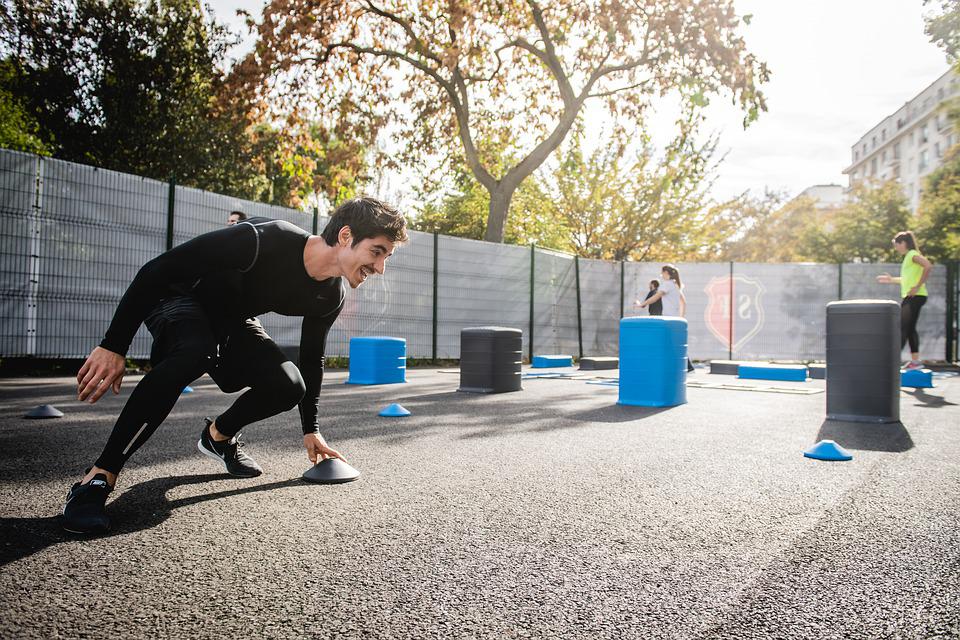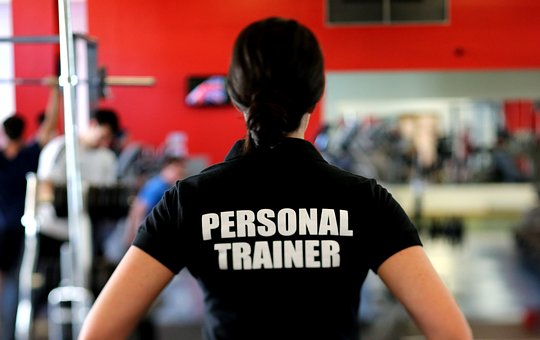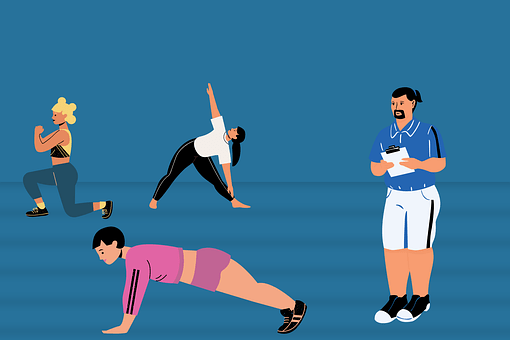
Doing some kind of physical activity on a regular basis can help to make both your body and your mind healthier. By deciding to incorporate running into your daily routine, it is advantageous to understand the mental and physical advantages it brings. Doing so will give you the impetus to stick to your plan and remain fit over the long haul.
You can begin jogging whenever and wherever you’d like: by yourself or with companions; with a pup and in meadows; on the asphalt or by the park. No matter how chaotic your agenda is, this activity easily slides into your day and does not require you to do anything besides what you decide.
Anyone can start running; all it takes is one step. It could be a struggle to start off and you’ll likely spend majority of the time walking instead of jogging, but your progress will be expeditious and the results on your health will start to appear immediately.
1. Stay a Healthy Weight
Many people take up running for multiple causes, however one of the most ubiquitous is to shed pounds. Being overweight is a major issue in advanced nations, particularly in Britain and America. In addition to causing potential medical issues down the road, it also leads to sluggishness and lack of enthusiasm.
This means managing what you eat and exercising more frequently. Even basic efforts such as walking part of your commute, using the stairs instead of the elevator, or putting energy into doing household chores can help initiate and promote weight loss. Maintain a healthy lifestyle by eating three meals and two snacks daily that contain an abundance of fruits and vegetables, whole grain starches, and proteins.
Once the pounds start to decline, you can initiate a proper running and walking routine, which will mainly consist of walking rather than running until your physical condition improves. It is important that you have on the right athletic gear and running sneakers even if you are just walking at the start in order to avert yourself from getting hurt and not making progress. As your fitness and well-being improve, you can start to do more lengthy runs and interval training, which can assist in losing the weight.
2. Prevent Health Problems
Even if you’re not running to lose weight, there are still plenty of other advantages that running can bring. Many of these measures are to keep diseases related to ageing at bay and thwart their occurrence. As we age, our bones lose their density, our muscles become weaker and lose their tone, and our risk of diseases like cancer and diabetes increases.
Unfortunately, no magical solution exists to prevent the ageing process, yet by staying fit and healthy from a young age, we can make sure we are setting ourselves up for success in the future. Consider exercise like an investment in your future – the sooner you start participating and putting in effort, the more you will gain in your senior years. The muscle of your heart is especially affected by the aging process, consequently rising the threat of problem such as heart disease, stroke, and angina. These risks are associated with cardiovascular problems, and your probability of experiencing them can be reduced by engaging in regular cardiovascular exercise to raise your heartbeat.
In addition to enhancing the heart muscle by manipulating the beat rate, you are making the arteries dilate and contract to facilitate the circulation of the blood, helping them remain elastic. Physical activity can boost your circulation, thereby minimizing the potential for blood clots in the future which can lead to strokes and heart attacks.
High cholesterol has become a significant concern recently, causing fatty deposits to accumulate in the heart which can ultimately result in cardiac illness. Jogging has been shown to increase levels of HDL, which is referred to as the ‘good’ form of cholesterol. These move the fat far from the heart and to the liver, where it is handled. If your cholesterol reading is high, then you must take proactive steps to control it, such as modifying your diet and exercising more. Fortunately, high cholesterol is a reversible condition, so if you take action now, you will be able to enjoy a healthier future.
Besides benefiting the heart, jogging confers numerous positive health effects. At the beginning, it enhances immunity by augmenting the amount of white blood cells. In addition to forestalling common colds and flu, having a stronger immune system will help combat the premature emergence of debilitating ailments such as cancer and diabetes. This also implies that you will recover faster from medical conditions and can bounce back sooner following childbirth or medical procedures.
Your lungs will benefit from any form of exercise. Your lungs are made to work hard when you run by taking in and releasing air quickly. Eventually, your lungs will be able to work better as their capacity increases. If you are a smoker, it can help to reverse some of the negative effects of the habit. If you have ceased the habit of smoking, then taking up running can help aid your lungs and reduce the likelihood of developing conditions related to smoking. Exercising can be beneficial for those who have asthma, as it can expand their lungs and reduce the occurrence of having to use an inhaler. Be sure to bring your inhaler with you wherever you go and halt if you sense an asthmatic episode about to happen.
3. Helps You Sleep Better
If you haven’t come across numerous articles about the significance of sleep lately, you must have been completely unaware of what’s been going on. And sleep may be especially important for athletes. In the end, this is when the physical body completes its maintenance. In Christie Aschwanden’s book Good to Go, covering athlete renewal, sleep has been evaluated as one of the only treatments that have solid proof of real results.
Experts at Johns Hopkins state with certainty that exercise can help people fall asleep more quickly and improve their sleep quality. It has been reported in the American Journal of Lifestyle Exercise that physical activity and sleeping are related to each other in numerous ways. Exercising frequently requires that you get sufficient and good quality sleep. The poorer your sleep practice is, the less probable it is that you will practice regularly.
Runners used to be cautioned that a late night exercise session could interfere with their rest for the evening. However, a 2018 meta-analysis of 23 studies concerning the same topic gave a different result. Training with intense intervals less than an hour before going to sleep is not recommended, however, exercising later in the evening can help make it easier to drift off and lead to better slumber.
4. Improve Your Knees and Back
Many find it hard to accept that this is a gain from running. They conclude that jogging is a high-impact activity, which can cause harm to the joints. It is a well known fact that some runners have suffered from knee pain and had to resort to biking instead. It is undeniable that a lack of physical activity leads to worse knee and back issues for adults, compared to the majority of runners.
Looking for proof? Okay, fair enough. An analysis of 675 marathon runners compared to those who are not active found that marathoneers had a lower rate of arthritis than the American population. Ultramarathoners apparently did not suffer any negative consequences. Examining the knees of athletes after they had finished a 2700-mile race throughout Europe, researchers noticed that the strenuous running had not had a noticeable negative effect on the knee joint.
In a study of 44 first-time marathon runners (17 males and 27 females), researchers found that, post-race, the bone marrow and articular cartilage of their knees was sustainedly improved for a period of at least six months. This was also true for the lower back. In a pilot study conducted in 2020 and named “Long-term running in middle-aged men and intervertebral disc health,” researchers compared the difference in disc spacing in middle-aged male runners and non-runners. Results suggest that people who participate in long-term endurance running as they age have slower rates of decrease in their heights of spinal discs. Furthermore, the longer the duration of endurance running, the less deterioration present in their spinal discs. Likewise for weekly mileage. More running was better.
5. Improves Mental Health, and Reduces Depression
Many people take up running in order to increase their physical fitness. After a brief period, the same people who initially responded to the query “Why do you run?” may provide a contrasting response. Their response was that it makes them feel better emotionally, mentally, and physically. It’s a way to have positive feelings and encourage fewer days feeling down.
The evidence for this effect is overwhelming. A 2016 meta-analysis of the relationship between exercise and depression showed that physical activity is a viable and effective way to treat depression, with some studies suggesting that it is even as successful as psychotherapy and prescription mediciation. Additionally, it is a less expensive and more accessible treatment alternative for those who may struggle to find or schedule medical attention.
The 2019 American Psychological Association’s handbook Sport and Exercise Psychology contains a chapter providing substantial evidence that exercising is beneficial when fighting mental illnesses, particularly depression. However, it is not wise to rely on physical activity alone to treat depression. Depression is an extensive and severe health issue and should be addressed with a comprehensive range of medical techniques.
6. Improves Glucose Regulation, and Lowers Risk of Diabetes and Prediabetes
A major consequence of the obesity-overweight problem in the Western world is high blood sugar levels, often resulting in diabetes. They are a menace to decreasing the amount of productive years a person could have, as well as overstretching the resources of the health industry (because of the large amount of people and high expense).
Engaging in or performing vigorous exercise, such as running, can significantly better this pessimistic perspective. As stated by the American Diabetes Association, exercising can both help to protect against Type 2 diabetes, usually brought about by bad habits, and be advantageous to those with Type 1 diabetes, usually caused by genetics. It can also keep people with pre-diabetes from turning into full-blown Type 2 diabetes.
The latest study about joggers and the potential for developing diabetes was issued at the end of 2019. This study tracked 19,000 grown-ups for over 6 years to compare the prevalence of diabetes in individuals who run and those who do not. Outcome: The runners had a decrease of 72 percent in their probability of getting diabetes. The investigators determined that engaging in leisure-time running could be correlated with a decreased chance of getting type 2 diabetes in adults.
Bonus Benefit: Running builds your self-esteem.
Once you have obtained this, you can accomplish almost anything. There is not a significant number of research which can affirm the advantages of running, since it has not been examined to a great extent. This research on diabetes sufferers showed that engaging in regular aerobic exercise is critical to increasing self-confidence.
But we do have Oprah Winfrey. To commemorate her 40th birthday, Oprah determined to take some time to focus on improving her physical condition, with the ultimate aim of competing in and finishing a marathon. Even though she was a large-bodied African American woman who did not partake in physical activities, she achieved her goal in the 1994 Marine Corps Marathon, completing the race in a respectable four-and-a-half hours. She later remarked that existence is comparable to a marathon. Completing a marathon is evidence that you can accomplish any goal you set for yourself.
Similarly, thousands of runners have shared that running has made them aware of the significance of moving forward with baby steps. This concept can be applied to many circumstances, such as completing a marathon, accomplishing educational targets, starting a business, and managing to rebound from difficult times and illness.
We are not claiming that running is a piece of cake … or that life is a breeze. Neither are. But running is something that can be tracked; we keep tabs on the distance we travel and the length of the run; we can tell where our progress started, and how much further we have gone. This demonstrates that hard work brings about positive outcomes, and no effort will not create anything. The effort is worth it.














